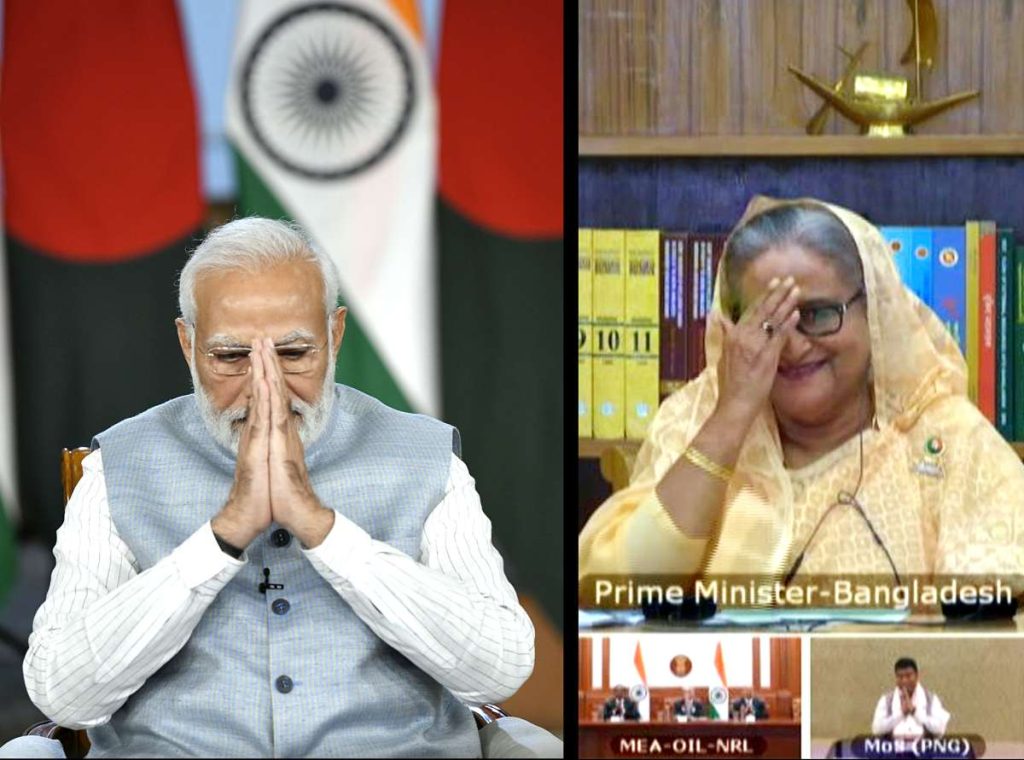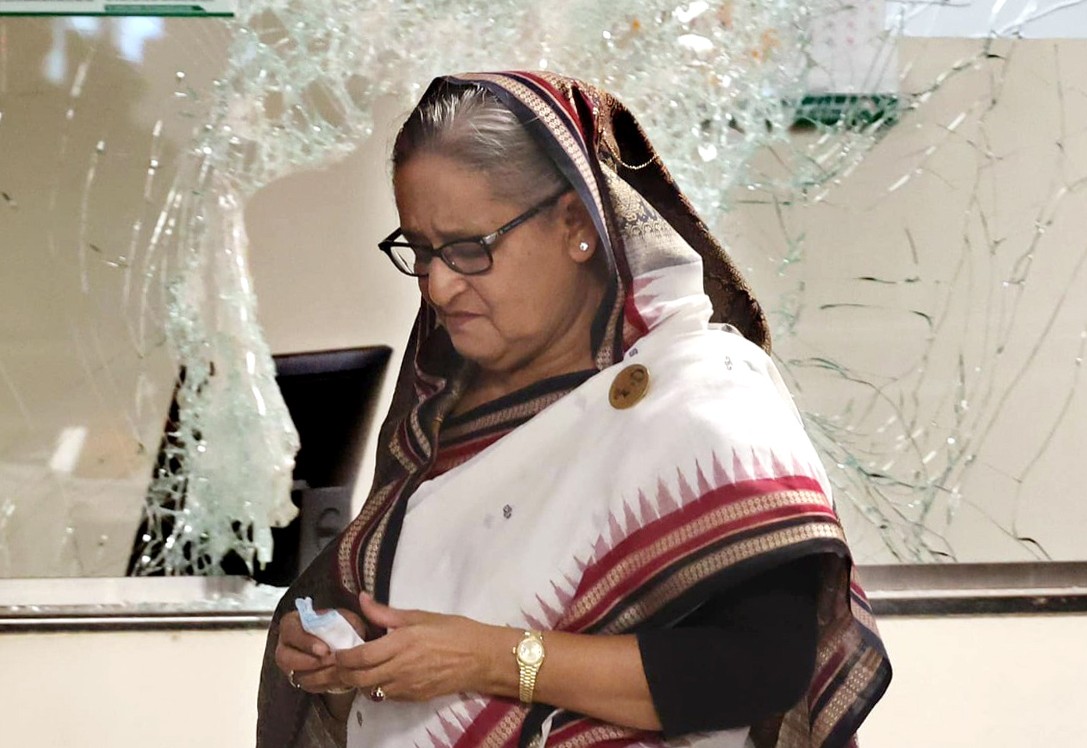Bangladesh has, over the last decade increasingly looked at India for collaboration and support in the energy sector, writes Darakhsha Qamar
Bangladesh was in the middle of an energy crisis last year, with rampant electricity shortages owing to the protracted Russia-Ukraine conflict which has had implications for the entire South Asia. The latter half of last year saw Bangladesh facing a shortage of 1000-1500 MW electricity on a daily basis, resulting in regular hour-long episodes of load shedding. Yet, it was more than the comfort of its citizens at stake, if the problem of frequent power cuts was not dealt with.
One of the fastest growing economies in the world, the Bangladeshi economy is largely dependent on the export of textiles and readymade garments. In fact, Bangladesh is one of the largest garment exporters in the world, making the garment industry its biggest source of foreign exchange. The looming energy crisis was, and if not dealt with properly, will, continue to affect the efficient operation of the Bangladeshi garment industry. The workers in the industry operate within a strict time frame in order to meet their international clients’ deadlines. It is an energy intensive industry and frequent power cuts on a daily basis would result in many industries relying on generators – so that the flow of work is not disrupted- driving the production costs up, ultimately affecting the efficacy of the industry and its desirability for foreign clients and investment.
Energy generation has been a priority for the Awami League government since they took office more than a decade ago and it is clear that Sheikh Hasina understands the importance- now more than ever- of a long-term energy security plan through regional cooperation. For that purpose, Bangladesh has, over the last decade increasingly looked at India for collaboration and support in the energy sector.

The inauguration of the India-Bangladesh Friendship Pipeline (IBFPL) a few days ago is the most recent manifestation of this strategy. The 131.5 km long pipeline connecting Siliguri in West Bengal to Parbatipur in Dinajpur district of Bangladesh will supply 1 million metric tonnes per annum of diesel to the seven districts of north Bangladesh. As Bangladesh imports most of the fuel for electricity, the cost reduction aspect of transporting diesel- from each barrel now costing 5 dollars (when earlier it cost 8 dollars per barrel)- is extremely important along with the shortened transportation time.
Furthermore, prioritising the energy security of the traditionally backward North Bangladesh, is in line with Sheikh Hasina’s policy of ensuring equitable distribution of the benefits of development equally across all regions in Bangladesh.The Rangpur and Rajshahi districts of North Bangladesh have also been the focus of other development projects under sheikh hasina’s leadership. Traditionally, the western part of the country has been worse affected by poverty than the eastern part. In 2010, a year after Awami League had come into power, Rangpur had a poverty rate of 42.3%. This was the impetus for launching the Northern Bangladesh Integrated Development Project in 2013 that was aimed at infrastructural development and greater availability of and accessibility to public services in order to reduce the regional disparity in economic development.
Apart from this, Sheikh Hasina, having being encouraged by Prime minister Narendra Modi to allow Indian companies entry in the power generation sector of Bangladesh during his Dhaka visit in 2015, had signed $4.5 billion worth of deals with the Indian government, that would allow private companies as well as companies run by the government of India to sell electricity in Bangladesh. One of these deals involved the Bangladesh Power Development Board (BPDP) signing a 25-year Power Purchase Agreement (PPA) with Indian billionaire Gautam Adani’s Adani Power (Jharkhand) in 2017. Under this agreement, Adani Power is to build a 1600 MW coal power plant, worth $1.7 billion in Godda, Jharkhand, to supply power to Bangladesh.
With Bangladesh gaining a strong presence within South Asia as well as outside of it, India has also sought to increase energy cooperation with Bangladesh. This is evident from the Modi-Hasina summit in September of last year and India’s aim to expand cooperation and dialogue amongst the BBIN countries (Bangladesh, Bhutan, India and Nepal).
The Sheikh Hasina government has proved itself adept at balancing great powers while securing investments that best suit their interests. The Russia-Ukraine war has likely expedited Sheikh Hasina’s policy of reaching out to alternate sources of investment for the energy sector, like the oil rich gulf countries for example. She recently spoke at the Doha Investment Summit, calling for the formation of a joint trade and investment committee by both Bangladesh and Qatar governments.
She especially welcomed Qatari investment in the energy sector. Nearer to home, it has steadily strengthened its relationship with its key neighbour, India. Now, the revitalisation of energy trade with India might also lead to energy trade with Nepal and Bhutan, thus opening up hitherto unexplored opportunities for harnessing the hydropower potential of its Himalayan neighbours. This would help Bangladesh access renewable energy at low cost, facilitating a smooth transition into green energy, which is the only viable future of energy generation.
(India Narrative)














